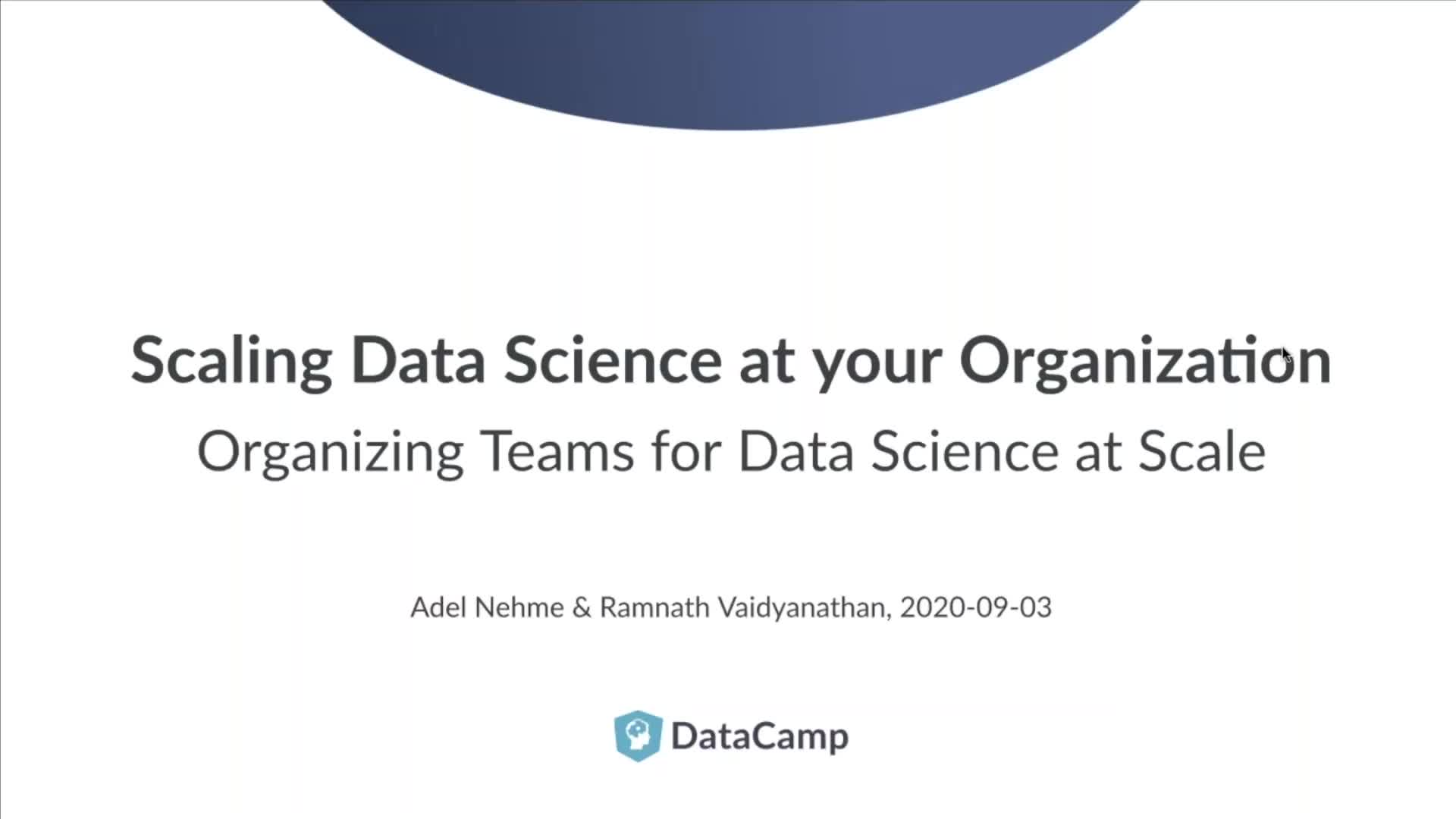Skip to main contentFor Business





Speakers


Ramnath Vaidyanathan
Training 2 or more people?
Get your team access to the full DataCamp library, with centralized reporting, assignments, projects and moreRelated
white paper
Your Organization's Guide to Data Maturity
Learn how evaluate and scale data maturity throughout your organizationwebinar
Scaling Data Science At Your Organization - Part 2
Scaling and democratizing data science relies on infrastructure and tools.webinar
Scaling Data Science At Your Organization - Part 1
Find out how to scale data science at your organization with IPTOP.webinar
Data Skills to Future-Proof Your Organization
Discover how to develop data skills at scale across your organization.webinar
Democratizing Data Science at Your Company
Data science isn't just for data scientists. It's for everyone at your company.webinar
Train Your Workforce to Thrive in a Data-Driven Age
Develop a scalable data training program and measure its effectiveness.Join 5000+ companies and 80% of the Fortune 1000 who use DataCamp to upskill their teams.
Loved by thousands of companies
